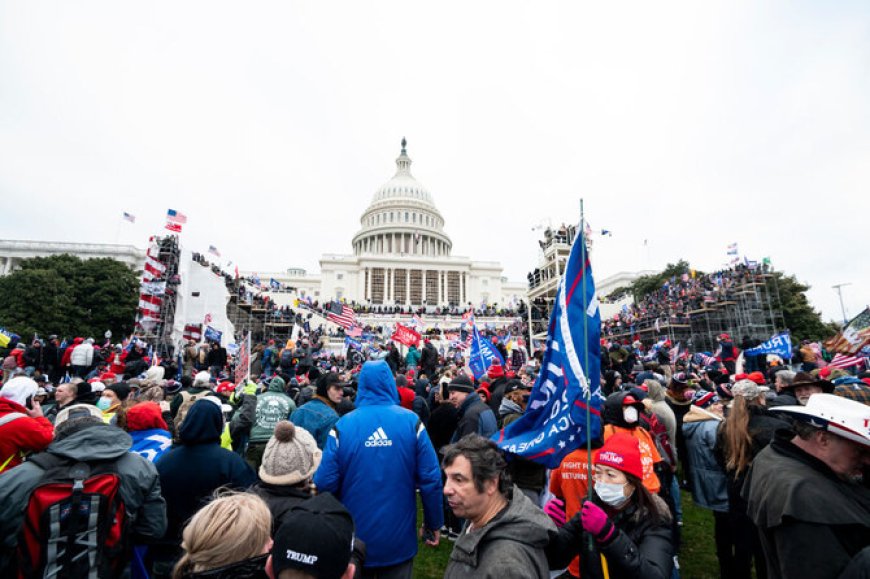Prosecutors Present New Evidence in Trump Election Case: Allegations of Criminal Conduct Intensify

In a new and significant development in the ongoing investigation into former President Donald Trump’s efforts to overturn the results of the 2020 election, prosecutors have laid out fresh evidence accusing Trump of resorting to criminal actions to cling to power. The evidence, revealed in a newly unsealed court filing, presents a more detailed and damning picture of Trump’s attempts to subvert the election process and undermine American democracy.
The court filing, submitted by Special Counsel Jack Smith’s team, offers a comprehensive view of what prosecutors aim to prove if the case proceeds to trial. It outlines Trump’s strategic groundwork, which began even before the election loss to Joe Biden, to sow doubts about the integrity of the election. The document highlights how Trump knowingly spread false claims of widespread voter fraud, despite repeated rejections of his legal challenges in court. More strikingly, it paints a picture of a president who, increasingly desperate, "used deceit to target every stage of the electoral process" in an attempt to hold onto power.
Trump’s Alleged Response to Jan. 6 Capitol Riot
Among the new details is a revealing exchange that allegedly occurred between Trump and his aides on January 6, 2021, as violent supporters stormed the U.S. Capitol. According to the filing, when Trump was informed that Vice President Mike Pence was in danger, he callously responded, “So what?” This response underscores the prosecutors' argument that Trump was willing to disregard not only legal and democratic norms but also the safety of his own administration to maintain power.
The document also recounts Trump’s disregard for the legal advice he received. When told by an adviser that the lawyer handling his legal challenges could not substantiate his false claims of election fraud in court, Trump allegedly shrugged off the advice, saying, “The details don’t matter.” This sentiment, according to prosecutors, encapsulates Trump’s entire approach to the post-election period: a refusal to accept reality, even as it became clear he had lost both the election and his legal battles.
Supreme Court Immunity and the Narrowing Scope of the Case
This latest filing comes in the wake of a Supreme Court opinion that conferred broad immunity on former presidents for official acts taken while in office. However, prosecutors argue that Trump’s conduct in the aftermath of the election was not an official act but a private scheme aimed at subverting the democratic process.
In their submission to U.S. District Judge Tanya Chutkan, prosecutors emphasized that Trump’s actions were fundamentally personal, not official. “When the defendant lost the 2020 presidential election, he resorted to crimes to try to stay in office,” the filing reads. The objective of this legal argument is to convince the court that Trump’s actions fall outside the protective scope of presidential immunity, allowing the charges against him to proceed.
Conversations Between Trump and Pence
The filing also includes previously undisclosed details of conversations between Trump and his then-Vice President Mike Pence. On November 12, 2020, shortly after the election, Pence suggested to Trump during a private lunch that he refrain from conceding but acknowledge the electoral process had run its course. Despite this advice, Trump persisted with his discredited claims of fraud and pushed forward with efforts to challenge the election results.
In another private meeting, Pence urged Trump to accept the results and move forward with plans to run in the 2024 election. Yet, Trump seemed unconvinced, remarking, “I don’t know, 2024 is so far off.” Prosecutors argue that this was emblematic of Trump’s refusal to accept the legitimacy of the 2020 results, as he continued to push false claims and undermine the electoral process.
Building Toward January 6
The new filing also highlights how Trump’s relentless misinformation campaign culminated in the violent events of January 6. According to the prosecutors, Trump’s speech on the morning of the Capitol insurrection, delivered just before the certification of the Electoral College votes, was the final step in his attempt to derail the transfer of power. In the speech, Trump allegedly used falsehoods to fuel the anger of his supporters, inciting them to march to the Capitol and disrupt the certification process.
This characterization of Trump’s actions underscores the broader narrative presented by the prosecution: that the former president used his platform and influence to destabilize the democratic process in a way that went beyond mere political maneuvering—it crossed into criminal behavior.
Trump’s Defense and Political Implications
In response to the filing, a spokesman for Trump’s campaign, Steven Cheung, dismissed the document as “falsehood-ridden” and “unconstitutional,” repeating claims that the Department of Justice is being weaponized by Democrats to damage Trump politically. Trump’s legal team continues to argue that the case is part of a larger effort by the Biden administration to interfere in the 2024 election.
As this legal battle unfolds, it is increasingly clear that the stakes are not just about Trump’s personal culpability but also about the precedent it sets for future presidential conduct. The outcome of this case will undoubtedly have lasting political and legal implications, shaping the contours of presidential accountability in the years to come.













































